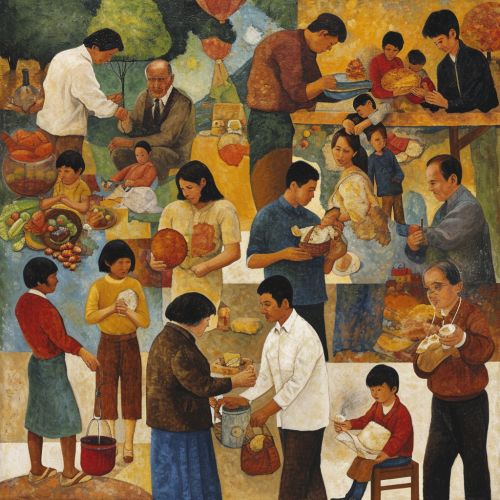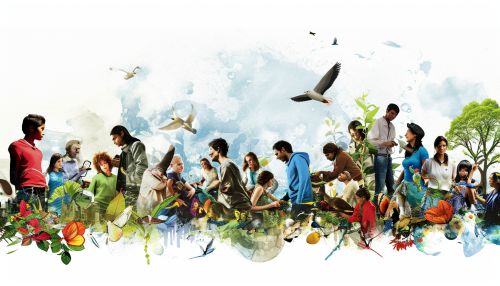The Lives of Others
Introduction
"The Lives of Others" is a comprehensive study of the human experience, examining the myriad ways in which individuals live, interact, and perceive the world around them. This article delves into the complexities of human existence, exploring the factors that shape our lives, from the personal to the societal, and from the psychological to the physical.


Personal Life
The personal lives of individuals are shaped by a variety of factors, including their personalities, emotions, cognitive abilities, and motivations. These elements interact in complex ways, influencing how individuals perceive themselves and the world around them, and guiding their behaviors and actions.
Personality
Personality is a fundamental aspect of human life, influencing our behaviors, thoughts, and feelings. It is shaped by both genetic and environmental factors, and can be understood through various theoretical frameworks, such as the Five Factor Model, which posits that personality can be understood in terms of five broad dimensions: openness, conscientiousness, extraversion, agreeableness, and neuroticism.
Emotions
Emotions are another central aspect of human life, influencing our thoughts, behaviors, and physical states. They are complex psychological states that involve a variety of components, including subjective experience, physiological response, and behavioral response. Emotions can be categorized in various ways, such as basic versus complex emotions, or positive versus negative emotions.
Cognitive Abilities
Cognition refers to the mental processes involved in acquiring knowledge and understanding, including thinking, knowing, remembering, judging, and problem-solving. These cognitive abilities play a crucial role in shaping our experiences and actions, and are influenced by a variety of factors, including genetics, environment, and education.
Motivation
Motivation is a driving force behind human behavior, influencing our actions, thoughts, and feelings. It can be understood in terms of various theories, such as Maslow's Hierarchy of Needs, which proposes that humans are motivated by a series of hierarchical needs, from basic physiological needs to self-actualization.
Societal Life
The societal lives of individuals are shaped by a variety of factors, including their roles and statuses in society, their interactions with others, and the societal norms and values they adhere to. These elements interact in complex ways, influencing how individuals perceive themselves and the world around them, and guiding their behaviors and actions.
Roles and Statuses
In society, individuals occupy various roles and statuses, which influence their behaviors, expectations, and interactions with others. These roles and statuses can be understood in terms of various theories, such as Role Theory, which posits that individuals behave according to the expectations of their roles and statuses.
Interactions
Interactions with others are a fundamental aspect of societal life, shaping our experiences, perceptions, and behaviors. These interactions can be understood in terms of various theories, such as Symbolic Interactionism, which posits that individuals act based on the meanings they assign to people, things, and events.
Norms and Values
Norms and values are societal standards that guide individuals' behaviors and beliefs. They are shaped by a variety of factors, including culture, religion, and personal beliefs, and can be understood in terms of various theories, such as Social Norms Theory, which posits that individuals' behaviors are influenced by their perceptions of what is normal and acceptable in their society.
Physical Life
The physical lives of individuals are shaped by a variety of factors, including their physical health and wellbeing, their physical environment, and their physical activities and behaviors. These elements interact in complex ways, influencing individuals' experiences, perceptions, and actions.
Health and Wellbeing
Health and wellbeing are fundamental aspects of physical life, influencing individuals' experiences, perceptions, and behaviors. They are shaped by a variety of factors, including genetics, lifestyle, and environment, and can be understood in terms of various theories, such as the Biopsychosocial Model, which posits that health and wellbeing are influenced by a complex interplay of biological, psychological, and social factors.
Environment
The physical environment in which individuals live plays a crucial role in shaping their experiences, perceptions, and behaviors. This includes both the natural environment, such as climate and geography, and the built environment, such as housing and urban design.
Activities and Behaviors
Physical activities and behaviors, such as exercise, diet, and sleep, play a crucial role in shaping individuals' health and wellbeing. They are influenced by a variety of factors, including personal beliefs, societal norms, and physical capabilities.
Conclusion
"The Lives of Others" is a complex tapestry of personal, societal, and physical factors that shape individuals' experiences, perceptions, and behaviors. By understanding these factors, we can gain a deeper appreciation of the richness and diversity of human life, and of the myriad ways in which individuals interact with and perceive the world around them.
